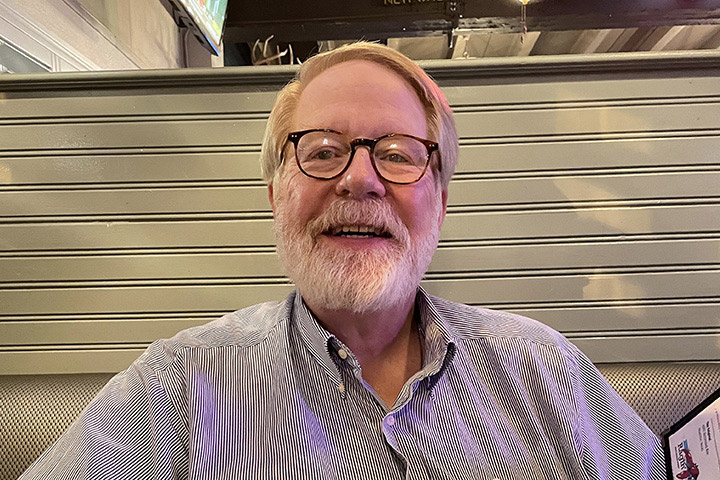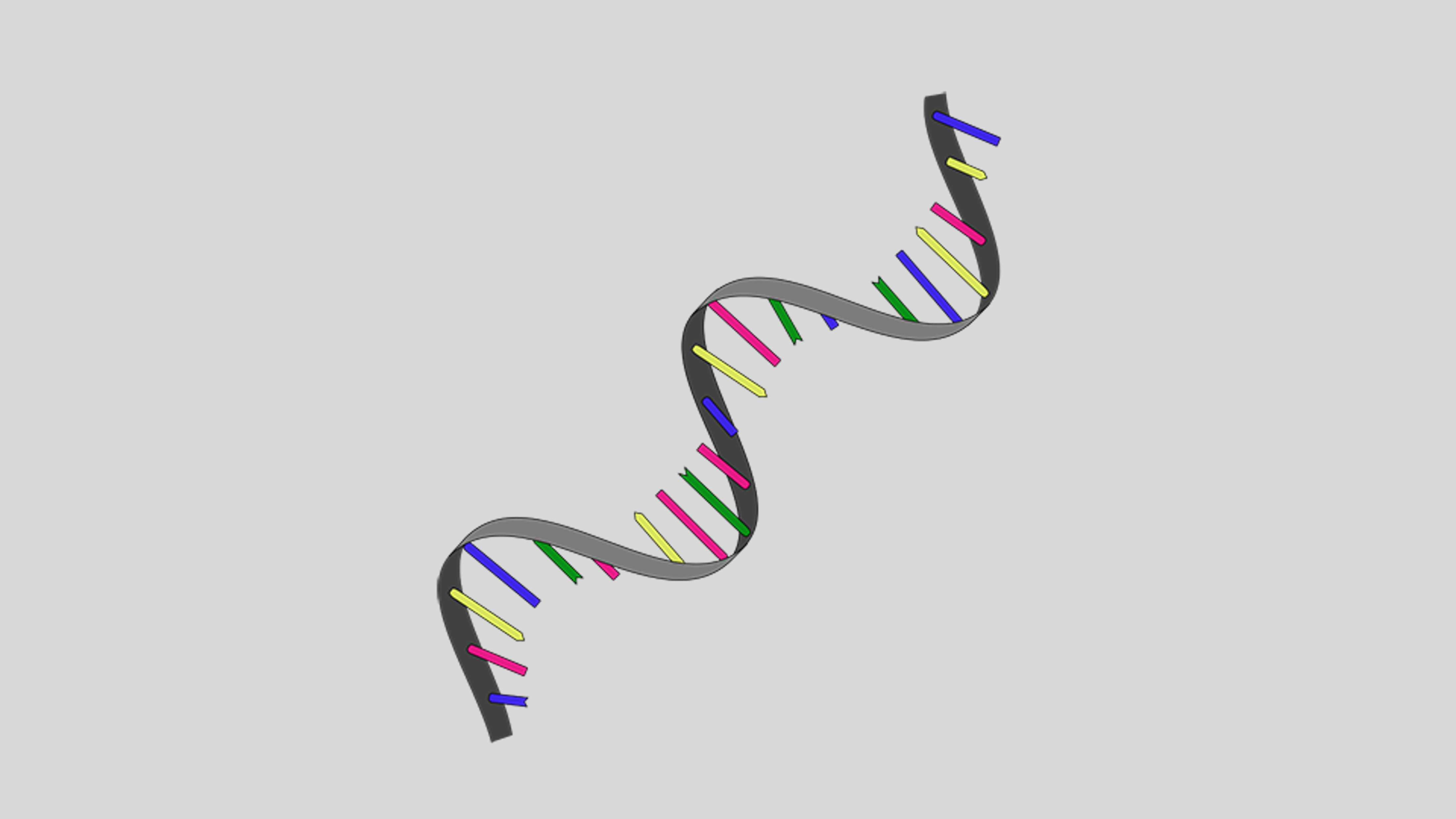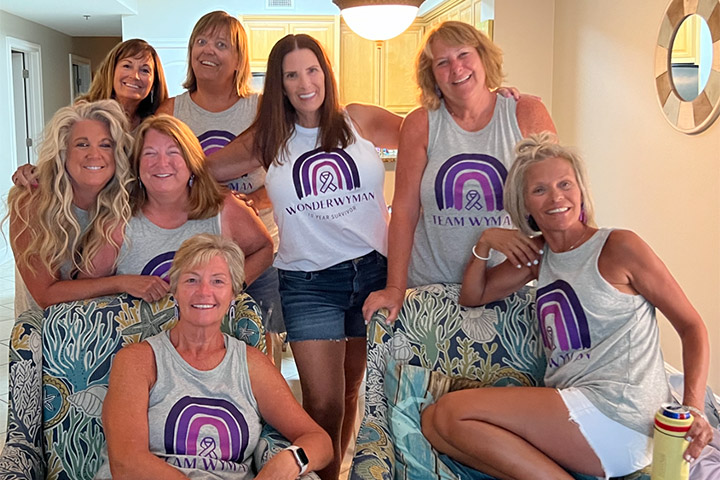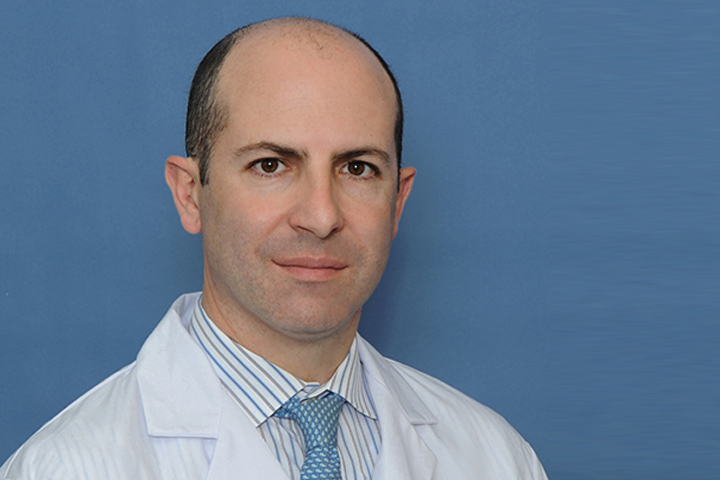Using Humor to Face Pancreatic Cancer

- Severe nausea leads to pancreatic adenocarcinoma diagnosis
- Teaming local oncologists with a major cancer center team
- Whipple procedure and FOLFIRINOX
- Cancer returns and I look for clinical trials
In December 2020, when I was 60, I began suffering from severe nausea.
I sought help from my local doctors. At first I underwent a slew of tests: I had an ultrasound, an MRI, and a CT scan. Then I had an endoscopic retrograde cholangiopancreatography, or ERCP. I also had an endoscopic ultrasound (EUS). Finally, on December 3, 2020, I was diagnosed with stage III pancreatic adenocarcinoma.
Combining Treatment Teams
My strategy began with genetic testing. I didn’t have any mutations, so my treatment plan progressed without consideration from that angle. My surgeon planned to perform a Whipple procedure followed by FOLFIRINOX chemotherapy.
I had the Whipple on January 8, 2021. The surgery was performed by Dr. Gazi Zibari, at the Willis-Knighton Cancer Center in my hometown of Shreveport, Louisiana. After I recovered from the surgery I finally began the FOLFIRINOX chemo, on March 29th, under the direction of Dr. Anil Veluvolu at the Willis-Knighton Cancer Center,
Once I had completed the full 12 chemo treatments of the FOLFIRINOX, I traveled to Houston, Texas, to get the expertise of the doctors at MD Anderson Cancer Center (MDA). You may be wondering why I ended up seeking treatment in Houston while living in Shreveport. My wife and I made the decision to build a relationship with the doctors at MDA based on conversations we had with our local physicians. They advised us that the local cancer teams didn’t have as much exposure to pancreatic cancer as their MDA counterparts. Likewise, the local oncologists were trained as general oncologists whereas those at MDA specialized in pancreatic cancer from the get-go. One other point we considered is that MDA is a large research hospital with more opportunities for clinical trials. It made sense to go the extra mile (or in my case, 240 miles each way) to undergo my treatment there. I began working with Dr. Dan Zhao, an oncologist at MDA.
After my surgery and chemo, Dr. Veluvolu recommended capecitabine (brand name Xeloda) with radiation. The radiation oncologist at MDA advised me to hold off on that treatment combination because my body showed no signs of cancer at that time. It was some good news after a lot of hard work.
Cancer Rebounds
Alas, my cancer returned a few months later. Between the end of September and the end of October my CA 19-9 went from 103 to 175. I had a PET scan which showed at least three lesions on my liver. Dr. Zhao got me into a promising clinical trial, but I was placed in a control group, which received FOLFIRINOX. The FOLFIRINOX left me with extreme nausea and I opted out of the trial. I decided just to get treatment with the combination of gemcitabine/Abraxane at home while waiting on a new trial that may be a good fit.
It is now 2023, I’m 62 years old, and I have stage IV pancreatic cancer. My treatment team and I are weighing our options. Hopefully I can get into another clinical trial going forward. For the meantime I am continuing the gemcitabine/Abraxane and taking no prisoners.
Despite the return of my cancer, I am still optimistic about this disease. Other people out there have succeeded in bringing the statistics up and I might as well do it too!
Finding Humor in Life During and After Treatment
As odd as this may sound, I advise others who have pancreatic cancer to have fun with it. Let’s joke about it as much as possible. One of my doctors said that if it weren’t for the cancer I would be in very good shape. My response was: “That is like telling me I’ve been voted the nicest person on death row, or the best swimmer on the Titanic!”
While we have no control over the initial diagnosis, we do have control over how we deal with it. Humor can put our friends and loved ones at ease so they don’t feel like they are walking on eggshells when they are around us.
I also don’t spend too much time thinking about it. Everything will run its course. The less we have to worry about, the better. Live the life you have and enjoy it!
Richard passed away two and a half years after his pancreatic cancer diagnosis. He approached his treatment with a smile and a hope for the best. We offer our deepest condolences to his family.



